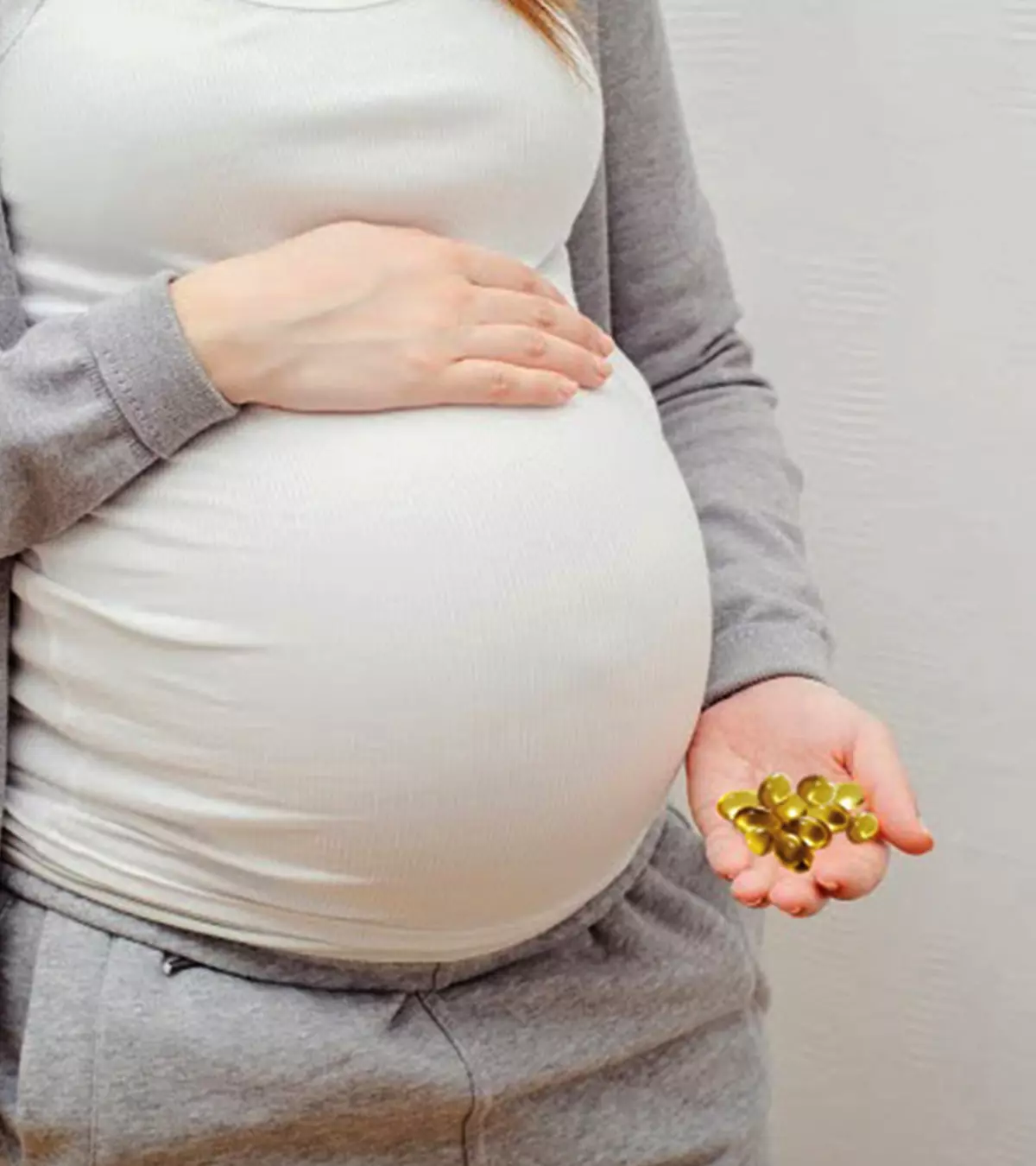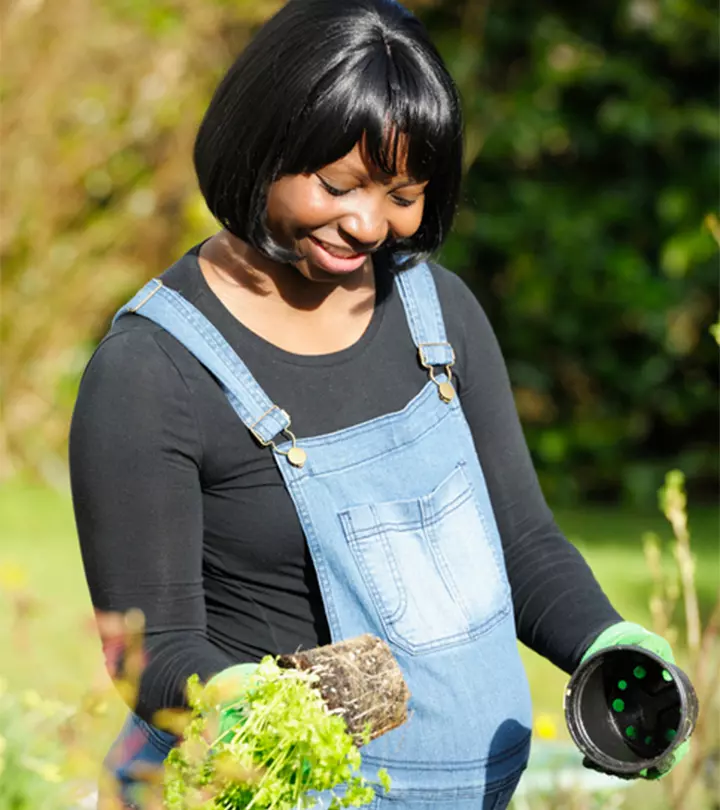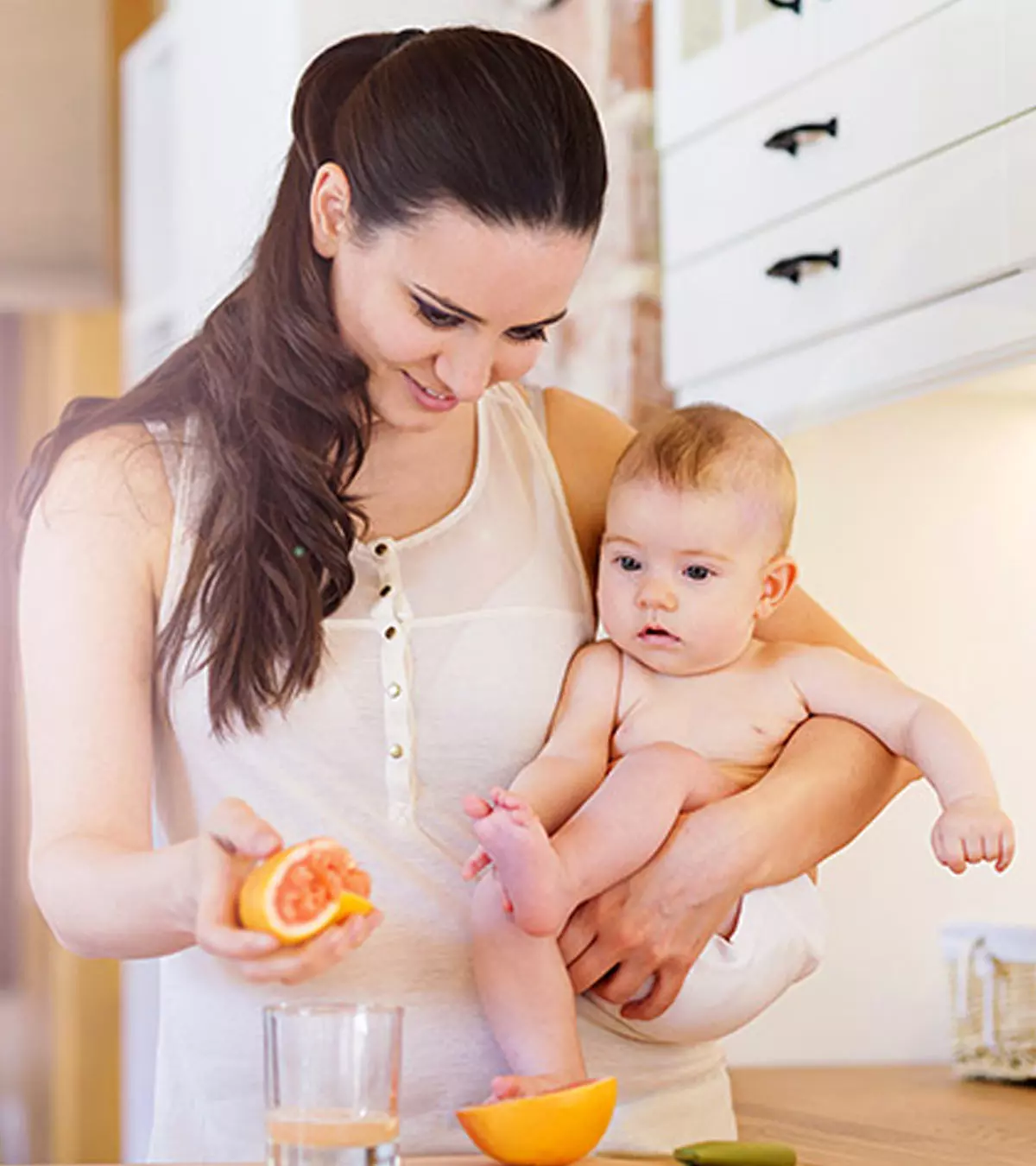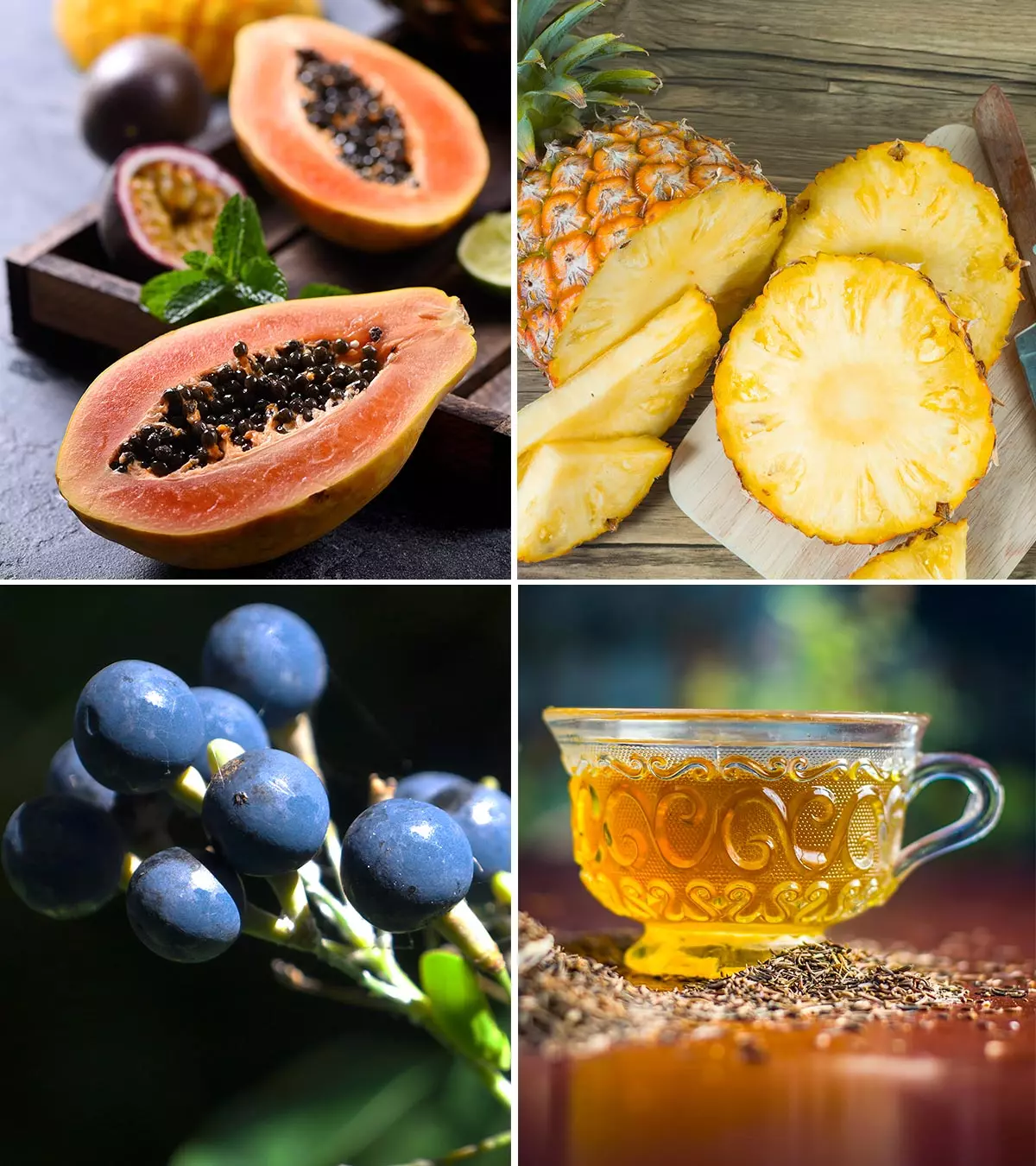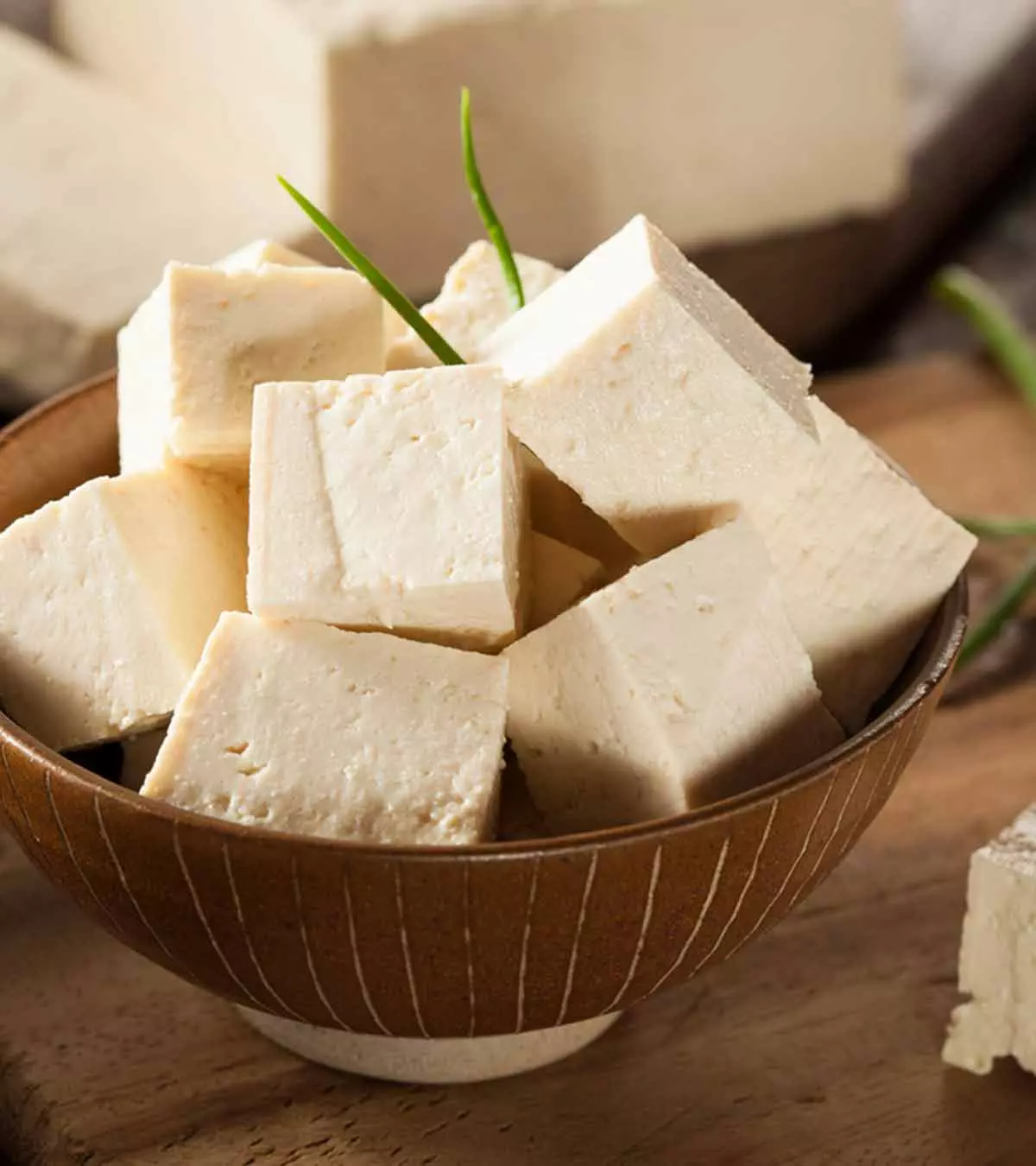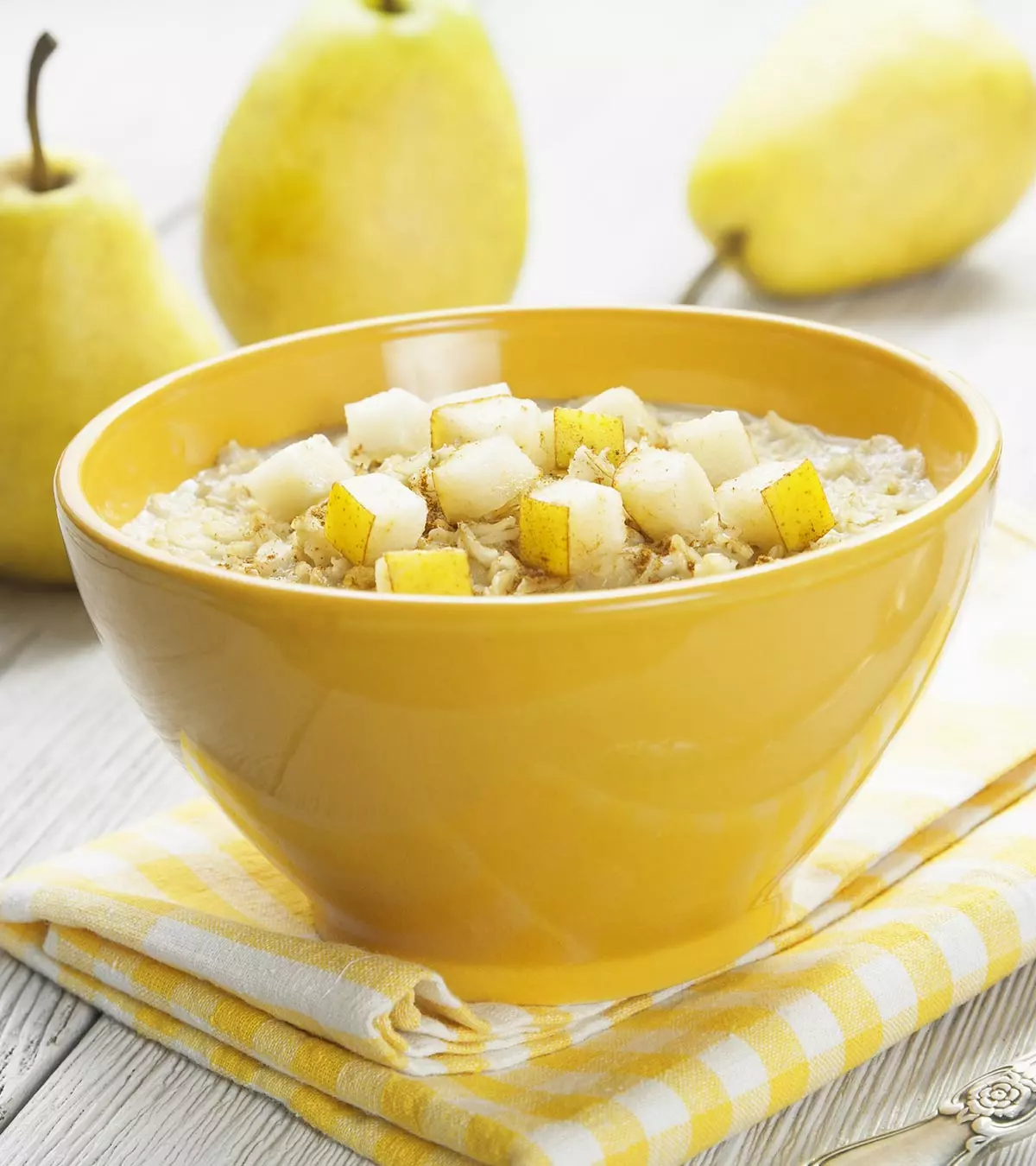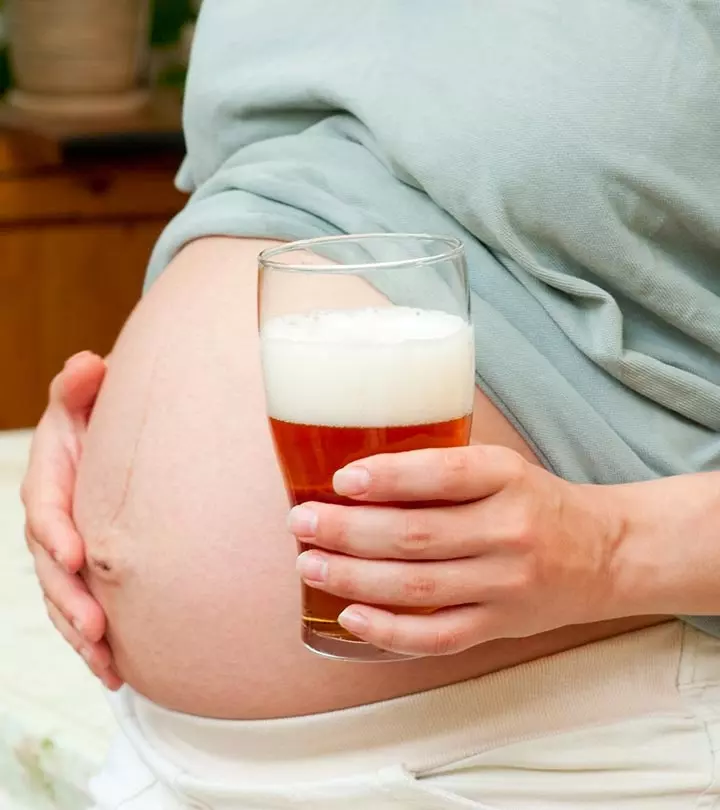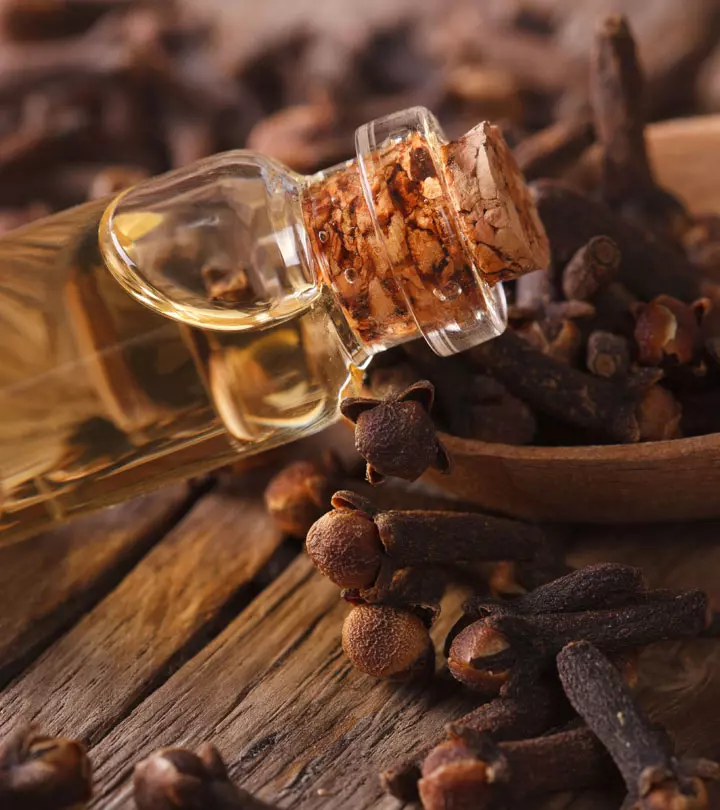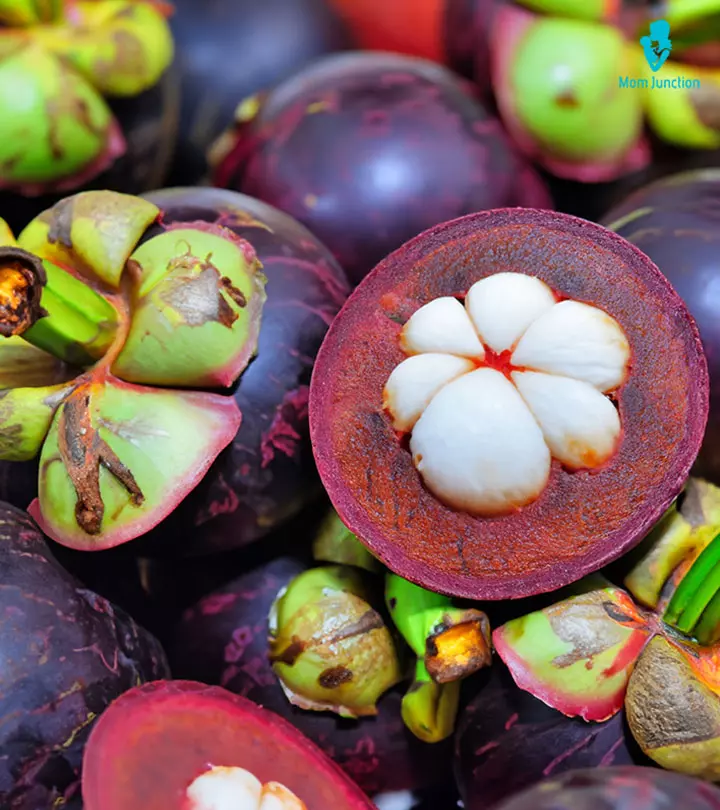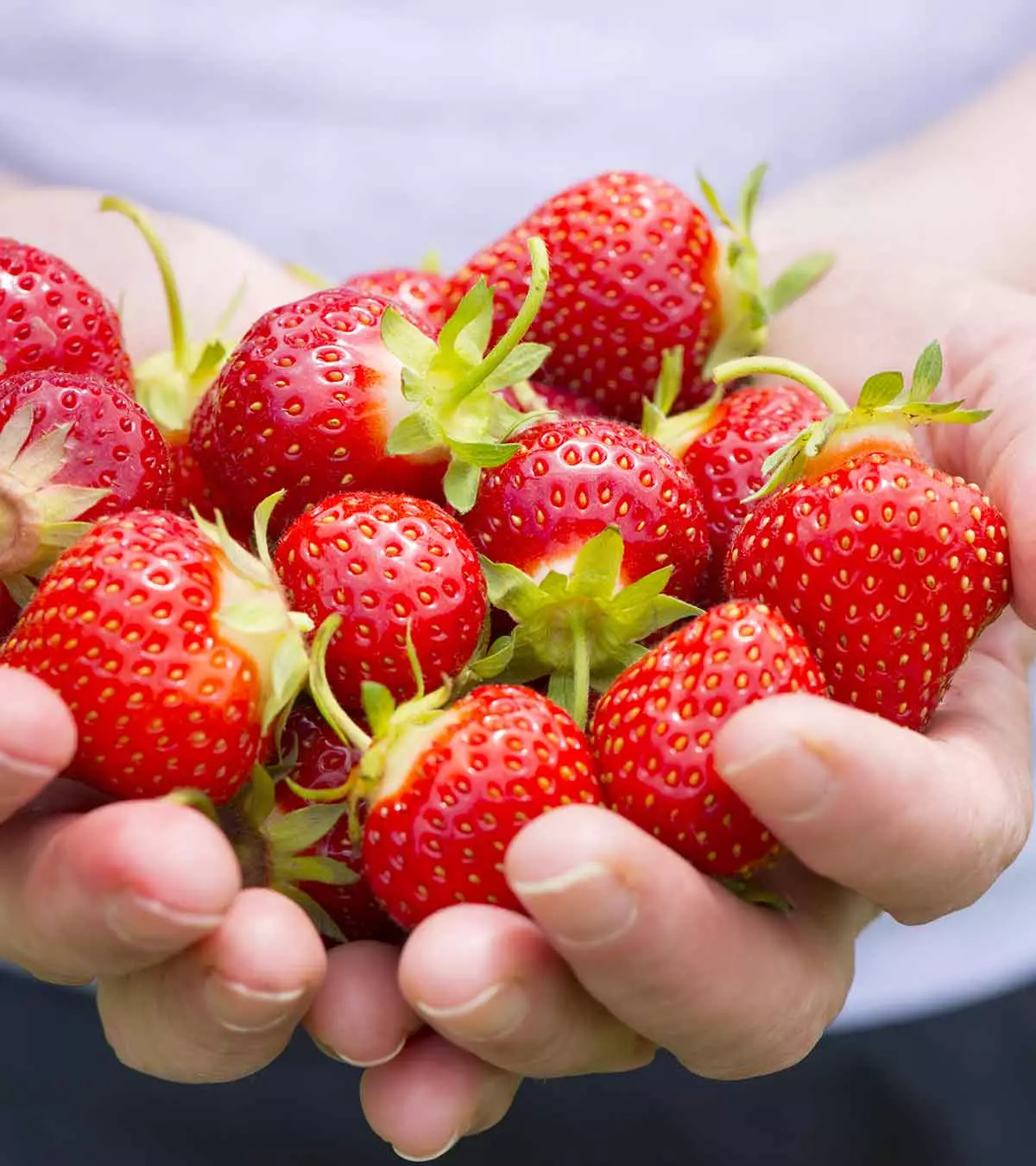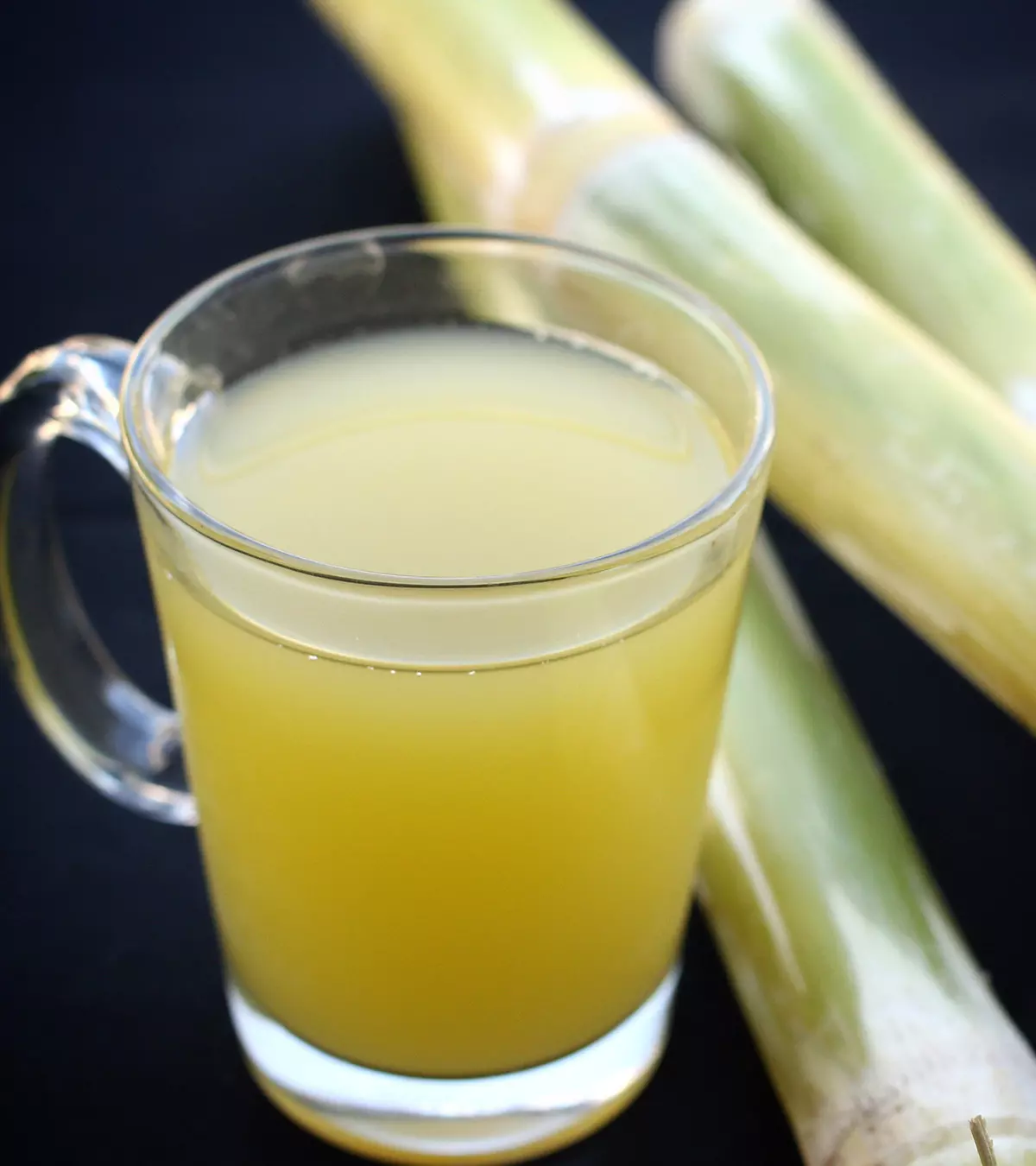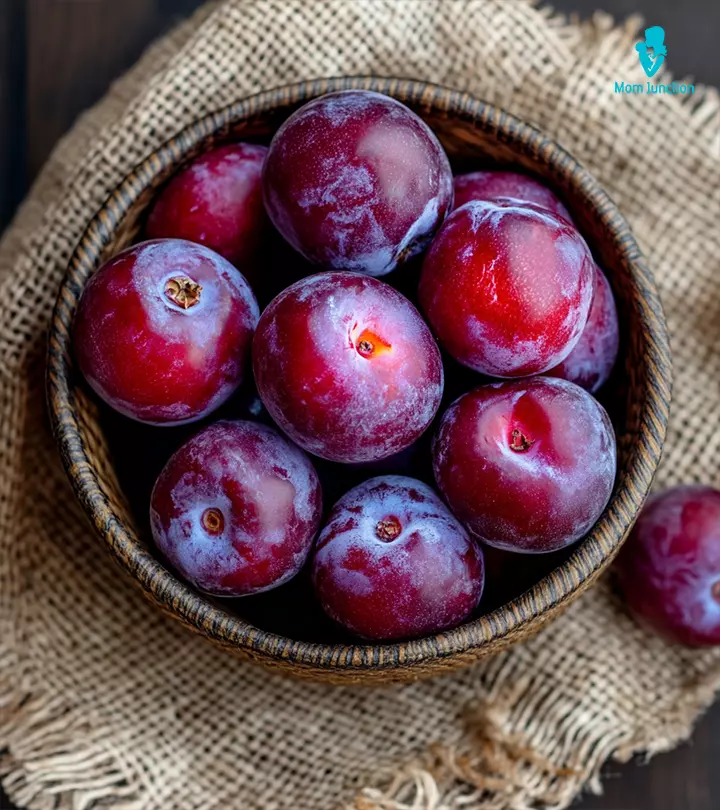
Image: Midjourney/ MomJunction Design Team
Consuming plums during pregnancy can provide you with various essential nutrients. However, you must eat them in moderation. Although some anecdotal evidence suggests that plums and pineapples are not safe during pregnancy, there is no harm in adding plums in moderation to your well-balanced pregnancy diet.
Plums are luscious. They stimulate the taste buds, and most women wonder if they can consume them in pregnancy. Read on to know the benefits and side effects of plums during pregnancy and how many plums a pregnant woman can consume.
Key Pointers
- Plums are rich in vital nutrients and vitamins and are generally considered safe when consumed moderately during pregnancy.
- They may help regulate blood glucose levels, relieve constipation, strengthen bones, and reduce the chances of premature delivery.
- It is recommended to use fresh and ripe plums and clean them thoroughly to avoid infections.
- Plums can be incorporated into the diet in the form of sauces, smoothies, or in salads.
- Women with kidney disorders or a history of kidney stones should avoid consuming plums.
- It is advised to consult a doctor before consuming plums during pregnancy if the woman is under medication for any ailments.
Is It Safe To Eat Plums During Pregnancy?
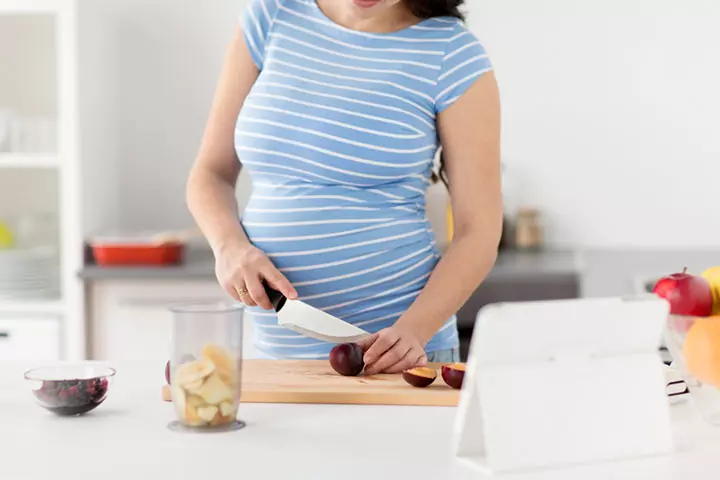
Image: Shutterstock
Plums and prunes (dried plums) could be good for pregnant women, as they are rich in nutrients such as potassium, phosphorus, magnesium, calcium, and vitamins A and C (1). However, consumption of these fruits is associated with the formation of kidney stonesiHard deposits in the kidneys formed by chemicals in the urine and must be avoided by women who have any kidney problems (2).
Jesse Feder, a licensed and registered dietitian from North Miami Beach, Florida, says, “You should avoid eating plums if you are prone to kidney stones. Plums have significant amounts of oxalatesiCompound found in plant foods, and an end product of Vit C , which can combine with calcium and form kidney stones. I would also limit them if you have blood sugar issues, as too much can cause increases in blood sugar and weight.”
How Much Plum Is Safe To Consume In Pregnancy?
The National Health Service, UK recommends pregnant women to eat five to seven servings of various fresh fruits every day
. You may take plums as one of the servings; two plums make one serving. You may have a fresh or dried form of the fruit or a glass of fresh plum juice (3).
Besides satiating your cravings, the nutrients in plums might offer you some health benefits. Learn more about it next.
Nutritional Profile Of Plum
A serving of 100g plum fruit can provide you the following nutrients.
| Nutrient | RDA (4) (5) (6) | Per 100g of plum (1) |
|---|---|---|
| Fiber | 28g | 1.4g |
| Vitamin C | 85mg | 9.5mg |
| Calcium | 1000mg | 6mg |
| Magnesium | 350 – 360mg | 7mg |
| Phosphorus | 700mg | 16mg |
| Potassium | 2900mg | 157mg |
| Folate | 600μg | 5μg |
Nutritional Benefits Of Plums During Pregnancy
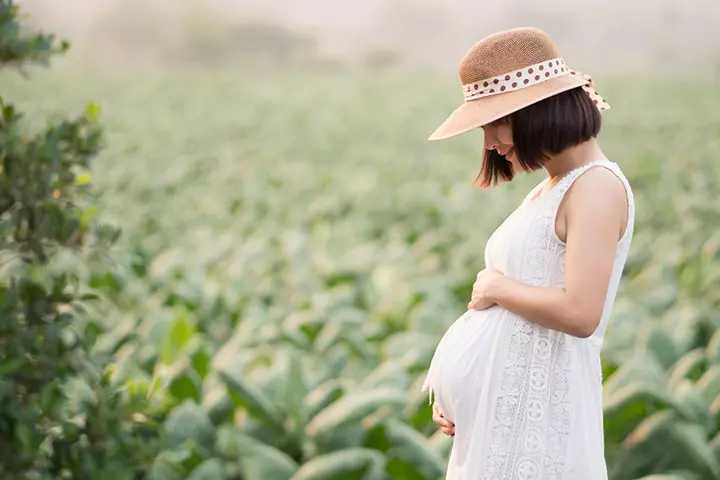
Image: IStock
These vibrant fruits are packed with essential nutrients that can support both the mother and the developing baby during pregnancy. Adding plums in your routine pregnancy diet could be beneficial. Here’s how.
- Maintains blood glucose levels: Your blood glucose levels tend to rise when you have gestational diabetesiDiabetes that develops during pregnancy . Eating low glycemic indexiA rating system that measures how quickly and how high a food increases blood sugar levels (GI) foods, such as plums, might help control the glucose levels in the body (3). Eating plums as part of a balanced diet can help manage blood sugar levels in women with gestational diabetes.
- Helps relieve constipation: NHS-backed Specialist Pharmacy Services (SPS) reports that around 40% of women encounter constipation while pregnant. Pregnant women suffer from constipation due to hormonal changes, less physical activity, or iron supplementation. Drinking prune (dried plum) juice could treat constipation during pregnancy and that could be attributed to its dietary fiber content that helps in digestion (7).
- Improves bone health: Dried plums or prunes contain calcium and might aid in improving the bone health of the mother. Therefore, it is a good idea to have prunes during pregnancy (8).
- Might mitigate the risk of premature delivery: Lack of vitamin C in a pregnant woman’s diet could increase the chances of premature rupture of membranes. Including foods such as plums that are good in vitamin C might help in mitigating this risk (9).
Some believe there are no known major side effects of eating plums during pregnancy. But it is best to exercise caution if you have any health concerns that could get aggravated due to the consumption of this fruit.
Possible Side Effects Of Plums During Pregnancy

Image: Shutterstock
While plums offer many health benefits, excessive consumption can lead to digestive discomfort due to their high fiber content (1). It’s essential to balance your intake to avoid any adverse effects on digestion.
Plums contain oxalate and should be avoided in pregnancy if you have or had kidney stones. Restricting the intake of plums could help in reducing the risks of calcium oxalate stones (a type of kidney stones) (2).
Sometimes, these fruits may interfere with the medications. So if you are on medication, ask your doctor whether you can eat plums or not. Also, remember to eat the fruit in moderation for a well-balanced pregnancy diet.
Craving Plums In Pregnancy: What Does It Mean?
Although there is no study to say why plums are one of the food cravings during pregnancy, some theories suggest that they tend to crave fruits due to the deficiency of vitamin C (10). Another reason could be hormonal changes that could heighten the sense of taste and smell, thereby resulting in cravings.
Plums should ideally be consumed fresh as a healthy option for snacks. Find out how to choose the best ones and store them for consumption when you are pregnant.
How To Select And Store Plums?
Feder adds, “Fresh store-bought plums are recommended during pregnancy rather than dried. Fresh plums have a lot more nutrients than dried plums. Avoid any overly ripe, wrinkled, or rotten plums, since they can potentially make you sick. Look for colorful, medium firm plums that are fresh.”
Keep these points in mind when you are buying and storing plums.
- Do not pick plums that have shriveled skin, breaks, blemishes, or spots.
- Select plums that are plump, but not too soft or hard.
- A grayish gloss on the fruit is natural; do not discard the fruit because of it.
- The fruit should have even color all around.
- As plums have water content, hold it in your palm, and notice the weight. It should be weighty and not too light.
- If the plums are unripe, you can leave them to ripen at room temperature.
- You may store plums in a plastic bag and keep them in the refrigerator for three to four days.
You may enjoy the taste and reap the benefits of plums in pregnancy in various ways.
Safe Ways To Include Plums In Pregnancy Diet
It is essential to wash plums before you make a delicious preparation from it.
- You may have plum sauce with bread, waffles, or pancakes.
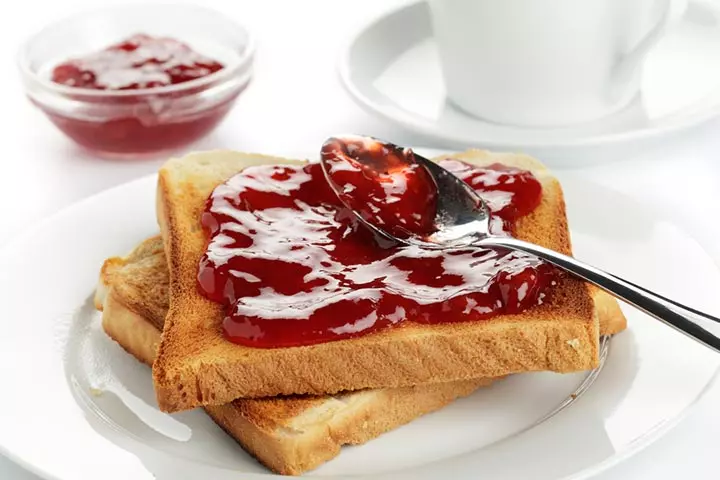
Image: Shutterstock
- Make a fruity salad with plums and berries such as blueberries, strawberries, or raspberries. You may add mint and honey to enhance the taste.
- Add plums to your breakfast cereals or to make a healthy trail mix.
- Make a yummy smoothie with fresh plums.
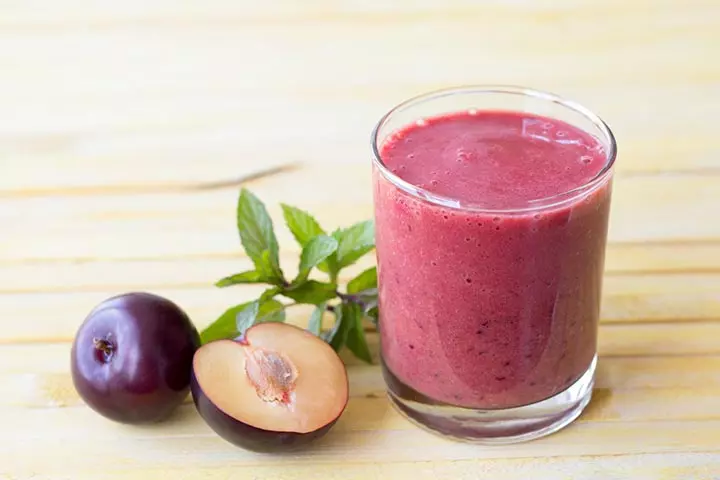
Image: IStock
- Jellies and jams can also be made with this fruit.
 Quick tip
Quick tipFrequently Asked Questions
1. Does eating plums during pregnancy help reduce nausea and morning sickness?
Plums may help reduce morning sickness in pregnancy due to their tart flavor (13).
2. Are there any foods that should be avoided when eating plums during pregnancy?
Plums contain oxalate, and taking plums with other high-oxalate foods such as dried apricots, red currants, figs, kiwi, beets, collard greens, eggplant, leeks, okra, parsley, and spinach, may not be suitable during pregnancy (14).
3. Are there any specific varieties of plums better for pregnant women than others?
There is no specific variety of plums considered better during pregnancy than others. Plums, when consumed as a part of a balanced diet, offer various nutrients such as potassium, magnesium, phosphorus, calcium, and vitamins A and C to pregnant women (1).
4. How can plums be preserved for long-term use during pregnancy?
For preservation, slice and pit the plums and lay them in a single layer on a baking sheet. Place the sheet into the freezer and transfer the pieces to a freezer bag once they are hard.
If eaten in moderation, plums during pregnancy may be an excellent and healthy addition to your prenatal diet. The fruit aids in blood sugar regulation, soothes constipation, enhances bone health, and may even reduce the chance of preterm birth. Plums are high in vital pregnancy nutrients such as potassium, phosphorus, magnesium, calcium, and vitamins, but you should avoid them if you have a history of kidney stones. If you don’t like plums, you may always explore alternatives with the same amount of nourishment.
Infographic: How To Have Plum With Your Meals?
Plums or prunes can be a healthy snack or a tasty and nutritious addition to your pregnancy meals when taken cautiously. So now that you know the benefits of this fruit, learn how to extract all its goodness and include it in your diet in different ways. Illustration: Momjunction Design Team
Illustration: Health Benefits Of Plums (Aloo Bukhara) During Pregnancy
_during_pregnancy_illustration.jpg.webp)
Image: Stable Diffusion/MomJunction Design Team
Pregnant women can benefit from eating plums! Plums are packed with essential vitamins and minerals that can help support a healthy pregnancy. Learn more benefits of plums in pregnancy!
References
1. Plums, raw; United States Department of Agriculture
2. Low-Oxalate Diet; Beth Israel Lahey Hospital Winchester Hospital
3. Healthy eating for gestational diabetes; Frimley Health NHS Foundation Trust
4. Michelle A. Kominiarek and Priya Rajan, Nutrition Recommendations in Pregnancy and Lactation; Med Clin North Am (2017)
5. Micronutrient Needs During Pregnancy and Lactation; Linus Pauling Institute | Oregon State University
6. The Role Of Fiber; University of Michigan Health System (2016)
7. Abeer, E. Dalia, and S. Ahmed, Utilization of prune juice or puree as a laxative for constipation pregnant rats induced iron intake during pregnancy and the impact on newborns; International Journal of Nutrition and Food Sciences (2013)
8. Food for strong bones; NHS
9. V. Haas, Prematurity is preventable; Midwifery Today #72, Winter 2004-2005
10. Twu, Uncovering the causes of pregnancy cravings; Hawaii Pacific Health (2017)
11. Ezinne O Igwe and Karen E Charlton,A Systematic Review on the Health Effects of Plums (Prunus domestica and Prunus salicina); NCBI (2016)
12. Nimanja Miletic et al., Phenolic content and antioxidant capacity of fruits of plum cv. ‘stanley’ (Prunus domestica L.) as influenced by maturity stage and on-tree ripening; Australian journal of crop science (2012)
13. Nimanja Miletic et al., Coping with Nausea; Porter Medical Center
14. Nimanja Miletic et al., Low-Oxalate Diet; Winchester Hospital
Community Experiences
Join the conversation and become a part of our nurturing community! Share your stories, experiences, and insights to connect with fellow parents.
Read full bio of Claudia Wilson
- Jesse Feder did his Bachelor of Science in Applied Physiology and Kinesiology with a specialty in Exercises Physiology from the University of Florida. A certified personal trainer by the American College of Sports Medicine (ACSM-CPT) and a Certified Strength and Conditioning Specialist by the National Strength and Conditioning Association (NSCA-CSCS), he has seven years of experience in training people and providing nutrition guidance. Jesse holds a masters degree in Dietetics and Nutrition from Florida International University and is a Licensed and Registered Dietitian (LDN/RDN).
 Jesse Feder did his Bachelor of Science in Applied Physiology and Kinesiology with a specialty in Exercises Physiology from the University of Florida. A certified personal trainer by the American College of Sports Medicine (ACSM-CPT) and a Certified Strength and Conditioning Specialist by the National Strength and Conditioning Association (NSCA-CSCS), he has seven years of experience in training people and providing nutrition guidance. Jesse holds a masters degree in Dietetics and Nutrition from Florida International University and is a Licensed and Registered Dietitian (LDN/RDN).
Jesse Feder did his Bachelor of Science in Applied Physiology and Kinesiology with a specialty in Exercises Physiology from the University of Florida. A certified personal trainer by the American College of Sports Medicine (ACSM-CPT) and a Certified Strength and Conditioning Specialist by the National Strength and Conditioning Association (NSCA-CSCS), he has seven years of experience in training people and providing nutrition guidance. Jesse holds a masters degree in Dietetics and Nutrition from Florida International University and is a Licensed and Registered Dietitian (LDN/RDN).
Read full bio of Swati Patwal
Read full bio of Rebecca Malachi
Read full bio of Aneesha Amonz






 Nutrition fact
Nutrition fact



